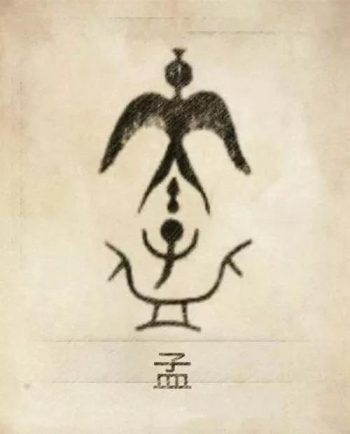The Meng(mèng) surname is one of China’s oldest and most culturally significant family names, deeply rooted in Confucian traditions and Chinese history. From its origins in the aristocratic families of the Spring and Autumn Period to its widespread presence in modern society, the Meng surname’s evolution reflects the broader development of Chinese culture and society. This article explores the origins of the Meng surname, its historical figures, cultural significance, and its impact on society.

Ⅰ、Origins of the Meng Surname
1. The Lu State Origin
During the Spring and Autumn Period (770–476 BCE), Qingfu, a son of Duke Huan of Lu, fled after committing regicide. His descendants adopted the name Mengsun to avoid persecution, later simplifying it to Meng. This branch, centered in Qufu, Shandong, became the primary lineage of the Meng family.
The use of "Meng" (meaning "eldest" in the context of sibling hierarchy) reflects the cultural significance of birth order in ancient China.
2. The Wei State Origin
Another branch of the Meng surname traces its roots to Gong Mengzhi, the elder brother of Duke Ling of Wei. His descendants took "Meng" as their surname, originating in the Puyang region of Henan.
3. Ethnic Integration
Over time, the Meng surname expanded through the assimilation of ethnic groups, such as the Jurchen "Monian" clan during the Jin Dynasty and the Manchu "Moerzhele" clan during the Qing Dynasty. These groups adopted the Meng surname, enriching its cultural and genetic diversity.
Ⅱ、Historical Figures of the Meng surname
1. Philosophy and Thought
Mencius: A central figure in Confucianism, Mencius is revered as the "Second Sage." His teachings on "benevolent governance" and the intrinsic goodness of human nature are foundational to Chinese ethical thought.
Mencius's mother: Known for her wisdom in raising Mencius, her stories of "moving three times for a better environment" and "cutting the loom to teach a lesson" are celebrated as parables of maternal dedication and educational values.
2. Literature and Art
Meng Haoran: A Tang Dynasty poet, He is celebrated for his nature-inspired poetry, such as Spring Morning. Alongside Wang Wei, he represents the pinnacle of Chinese pastoral poetry.
Meng Chang: A ruler of the Later Shu Kingdom during the Five Dynasties period, he is credited with creating the first known couplets, a tradition that remains central to Chinese New Year celebrations.
3. Politics and Military
Meng Huo: A legendary leader of the Yi ethnic group during the Three Kingdoms period, his story of being captured and released seven times by Zhuge Liang symbolizes ethnic unity.
Meng Zhixiang: The founding emperor of the Later Shu Kingdom, he played a key role in the cultural and economic development of the Sichuan region.
Ⅲ、Cultural Significance
1. Ancestral Halls and Clan Culture
The Meng surname’s ancestral halls, such as those in Zoucheng (Mencius’s hometown), are cultural landmarks. The family motto, "Virtue through Learning, Integrity through Reflection," reflects their emphasis on education and moral character.
2. Educational Legacy
Mother Meng’s teachings and Mencius’s philosophical works have shaped Chinese educational values for centuries. The Meng surname’s emphasis on learning and ethical behavior continues to influence modern education.
3. Modern Cultural Symbols
Mencius’s birthday (the second day of the fourth lunar month) is recognized as an intangible cultural heritage in China. The Meng surname Mansion and Temple in Zoucheng are key sites for Confucian cultural tourism.
Ⅳ、Social Impact
1.Population Distribution and Migration
Today, there are approximately 4.3 million people with the Meng surname, with 70% concentrated in Shandong, Henan, and Hebei provinces. During the Ming and Qing dynasties, some Meng descendants migrated to Japan, forming the "Buirin" branch in Hiroshima. In modern times, the Meng surname has spread to Southeast Asia and North America through migration.
2.Contributions to Modern Fields
Meng Shaonong: Known as the "Father of China’s Automotive Industry," he led the design of the first Liberation Truck.
Meng Fanji: A descendant of Mencius in Taiwan, he has dedicated his life to promoting Confucian culture.
Conclusion:
The Meng urname’s thousand-year history is a testament to the enduring power of Confucian values and cultural integration. From Mencius’s philosophical insights to Mother Mencius’s timeless wisdom, from poetic masterpieces to modern scientific achievements, the Meng urname continues to shape Chinese culture and society. Today, Meng descendants around the world carry forward this rich legacy, contributing to fields as diverse as technology, art, and education.